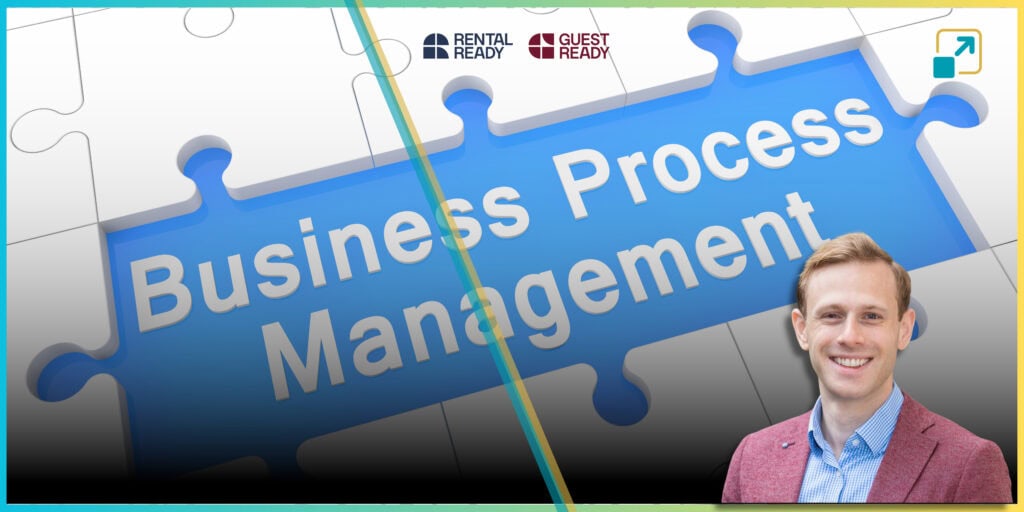The biggest barrier to growth in property management isn’t lack of demand, it’s how well (or poorly) your operations are structured.
Many property managers find themselves stuck, unable to scale beyond a certain number of properties. The reason? Their processes aren’t built for growth. Manual workflows, scattered systems, and disorganized teams create barriers that slow everything down. The result? Lost revenue, frustrated owners, and stalled growth.
So how do some of the biggest property managers build a business that can grow without breaking?
We spoke with Alexander Limpert, CEO of GuestReady and RentalReady, who grew his property management company from zero to 3,500+ properties across seven countries. He shared how he built one of Europe’s largest property management firms and developed a tech-driven solution to help managers streamline operations, improve efficiency, and scale seamlessly.
If you’re a property manager aiming to scale without getting overwhelmed, this deep dive is for you.
From Airbnb Host to Managing 3,500+ Units: The Journey of GuestReady
Many short-term rental businesses start from personal experience, and GuestReady is no exception.
Alexander Limpert’s journey began as an Airbnb host who realized that while OTAs like Airbnb, Booking.com, and Vrbo were great at connecting guests with properties, the real challenge began after the booking was confirmed.
The Operational Gaps He Identified—and How They Hold Property Managers Back
- Operational complexity – After guest books, managing the stay (check-in, cleaning, maintenance, communication) becomes a full-time job.
- Scalability struggles – Individual property owners struggle to handle multiple listings efficiently.
- Lack of standardization – Unlike hotels, short-term rentals lacked uniform quality and service.
Recognizing this gap, GuestReady launched in 2016, offering a full-service short-term rental management solution. But growth didn’t come easy, scaling meant solving real challenges in operations, team structure, and technology.
How GuestReady is Growing Fast—Through Smarter Automation, Happier Owners, and Smoother Stays
When asked about the biggest drivers behind GuestReady’s success, Limpert highlighted two critical factors that helped them scale from zero to thousands of properties.
- Retaining Owners & Guests Through Exceptional Service
Growth isn’t just about adding properties, it’s about keeping owners happy so they stay. At its core, property management is a relationship-driven business.
Here’s how GuestReady does it:
- Providing hotel-grade services—including 24/7 support, professional cleaning, and quality linen.
- Ensuring properties meet high standards—clear onboarding checklists ensure all listings meet market demands.
- Building trust through transparency—GuestReady’s owner dashboard gives full visibility on bookings, revenue, and expenses.
Takeaway for Property Managers:
If you want to scale, retention is just as important as acquisition. Keeping owners happy through great guest experiences, clear communication, and reliable service ensures long-term stability.
- Automating Operations with AI-Powered Technology
As GuestReady grew, so did the complexity of managing thousands of properties. Manual processes weren’t scalable, so they built RentalReady, a PMS (Property Management System) tailored to their needs.
Limpert describes RentalReady as a system built by operators, for operators, solving the real challenges property managers face every day.
Key features of RentalReady that make scaling possible:
- AI-powered guest communication—reducing response times and increasing efficiency.
- Automated payments & owner payouts—eliminating financial discrepancies.
- Deep OTA integrations—allowing full control over Airbnb, Booking.com, and Vrbo listings from one dashboard.
- Task management & ticketing system—ensuring smooth handling of cleaning, maintenance, and guest issues.
- Structured property data storage—keeping essential details (WiFi instructions, appliance guides, fuse box locations) easily accessible for staff and AI-powered automation.
Takeaway for Property Managers:
Technology isn’t optional anymore. If you want to scale efficiently, you need to systemize everything from guest messaging to maintenance scheduling.
How GuestReady Recovered Lost Revenue Through Smart Automation
Early on, GuestReady ran into a major financial tracking issue, they were paying out owners correctly but weren’t reconciling all payments received from Airbnb. This led to hundreds of thousands of dollars in missing revenue. The solution? Automating every step of financial reconciliation, ensuring every booking payment is matched, tracked, and correctly distributed.
Takeaway for Property Managers:
Manually managing payments, guest messages, and maintenance? That won’t scale. AI and automation are the only way to streamline operations and prevent costly mistakes.
How to Segment Your Processes for Scaling a Property Management Business
Alexander Limpert emphasized that scaling in short-term rental management isn’t just about growing the number of listings—it’s about structuring operations effectively. Many property managers struggle with growth because they don’t have clear process segmentation in place. Here’s how GuestReady structures its operations and how you can apply these principles:
1. Break Down Operations into Functional Areas (Even If You Have a Small Team)
At GuestReady, the team is structured into distinct departments:
- Sales & Onboarding – Handles new property acquisitions and ensures smooth setup.
- Guest Experience – Manages guest communication and ensures seamless stays.
- Operations – Oversees housekeeping, maintenance, and in-field service delivery.
- Owner Success – Focuses on keeping property owners happy and informed.
Key Insight: Even if a company is small, grouping tasks into categories helps avoid bottlenecks and ensures smooth workflows.
2. Think in Terms of Workflows, Not Just Individual Tasks
Instead of handling everything on an ad-hoc basis, structuring processes allows property managers to replicate success at scale.
Example:
- Instead of one person handling all guest issues, a ticketing system assigns tasks systematically.
- Instead of manually tracking payments, automating reconciliation prevents financial errors.
- Scaling is about repeatable systems, not just working harder.
Wrapping Up
Scaling a property management business is tough, but those who leverage structured processes and automation will thrive.
If you’re managing a growing portfolio and struggling with operations, financial tracking, or guest communication, GuestReady’s model offers valuable lessons—prioritize owner retention, automate processes, and use AI-powered tools to keep things running smoothly.








